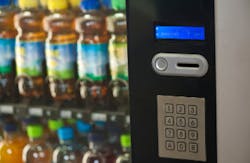Bottled water bans increase waste and sugary drink consumption
ALEXANDRIA, Va. — A study published by the American Journal of Public Health (AJPH) claims that banning bottled water can lead to greater consumption of less healthy beverages, according to a press release.
The research supports “the International Bottled Water Association’s (IBWA) position that efforts to ban or restrict the sale of bottled water can lead to increased consumption of less healthy beverages and plastic waste,” stated the release.
When the University of Vermont banned bottled water sales, the consumption of sugary drinks increased by 25 percent, noted the release. The amount of plastic bottles in the waste stream increased by 8.5 percent.
People will choose beverages that contain sugar, caffeine and other additives from vending machines that do not carry bottled water, reported the release, instead of automatically searching for a drinking water fountain.
“The data show that per capita shipments of bottles, calories, sugars and added sugars increased significantly when bottled water was removed,” said Chris Hogan, vice president of communications for IBWA, in the release. “Shipments of healthy beverages declined significantly, whereas shipments of less healthy beverages increased significantly. As bottled water sales dropped to zero, sales of sugar-free beverages and sugar-sweetened beverages increased.”
He continued in the release, “The purpose of the bottled water sales ban was to encourage students to carry reusable water bottles that could be filled with tap water. That did not happen. The study found that the increase in sugar-sweetened beverage consumption occurred even with the university’s efforts to encourage water fountain use — retrofitting 68 water fountains so that reusable water bottles could be used and educational campaigns to inform consumers and handing out free reusable water bottles at campus events.”
The release reported that bottled water companies have the smallest water and energy footprint of any packaged beverage. “Telling students that they cannot buy bottled water is a step backwards, especially with the growing rates of obesity and diabetes in the U.S.,” concluded Hogan in the release.
Click here to read the entire release.
